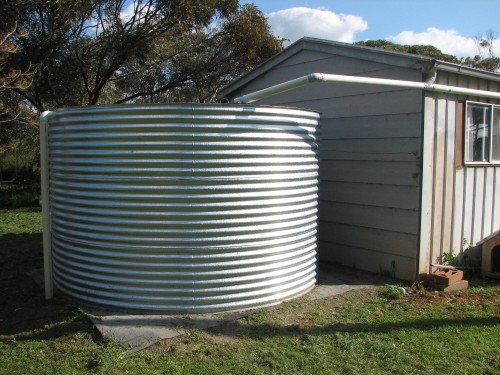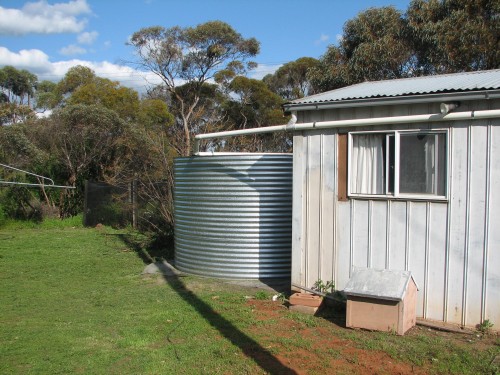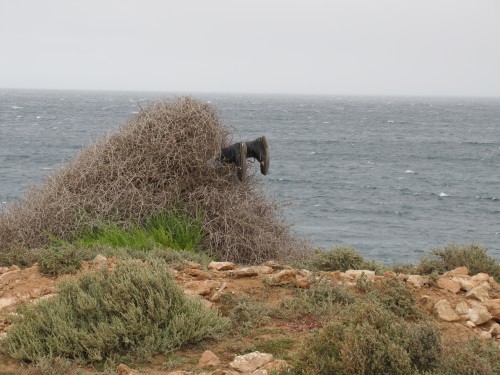At the end of the rainbow
We had a few showers this week but overall it was a beautiful week. Plenty of sunshine, gentle cooling breeze and not too hot. Just great for working in the garden, something I’ve done a lot of over recent weeks. It’s now looking much better for the effort. Mind you, the five acre block we enjoy – “The Estate” – had been sadly neglected over the last 3 years while I did my masters degree.
Yesterday I went to collect the weekend papers from the driveway. As I looked towards the west I saw a brilliant rainbow arching right across the sky. I was reminded of the saying “Rainbow in the morning, shepherds take warning.”
Well, I’m not a shepherd and haven’t owned any sheep for over a decade, so does the warning apply to me? And does it also apply to writers, and other occupations? What about them? And why just shepherds?
Then there is the vexed question of the pot of gold at the end of a rainbow. Does one pursue it in the off chance one can find that wonderful treasure? It was quite plain to see where the rainbow ended yesterday – right out there in the paddock just up the hill a little from our driveway. About 200 metres away. A quick two minute jog and I’d find it.
And suddenly I was reminded of the promise to Noah in the Biblical account of The Flood. God promised never to flood the whole earth again.
How does this all fit together – or was it just my sleep clouded brain not yet fully functioning? Let me try to make some sense of it.
- There is no “pot of gold” – chasing after illusory fortunes is a waste of time and effort. Work hard at writing and the rewards will come. Quite often I find that just the process of writing a well crafted story, article or poem has its own intrinsic reward. Too often we only look for recognition from others (“fame”) and monetary gain (“fortune”) . Sometimes merely to write is its own reward.
- The rainbow was there as a promise of God’s compassion, not a warning. He will provide for me. No amount of worrying whether a publisher will accept my writing, or fretting over my readers’ reactions will change them. So why worry?
- Rainbows are always formed by rain falling. Into every life some tears will fall like heavy rain drops in a tropical storm. Sometimes those tears are bitter, sometimes sad, sometimes fearful and often in disappointment. But just as every storm blows over, every rain front dissipates, so too will that heavy cloud be driven away. Then the sun can shine and the rainbow burst into full colour.
Good writing.
Life is tough in the Aussie bush
Life has certainly been tough in most parts of the Australian countryside for more than a decade now. Many rural people have experienced devastating droughts, overwhelming floods, unbelievable locust and mice plagues, raging bushfires, economic downturns and unsympathetic banks. Sadly, many have not coped with the stresses of these disasters and have ended their lives. Suicide is a serious issue in many rural communities, and all it does is solve the problem for the individual, leaving further tragedy and perhaps guilt for those left behind.
With typical laconic Aussie humour in the midst of all this angst, the poor fellow shown in the photo above couldn’t even get his last act right. Instead of leaping over the cliff to the rocks below, he stumbled into a boxthorn bush. What a harsh way to go!
Seriously, although we may laugh at this poor fellow’s tragic and misplaced end, suicide is no laughing matter. If you are experiencing stress, anxiety or depression, or know someone who is, please consult your family doctor ASAP. In the meantime, sites like Beyond Blue here in Australia can be a first step on the path to recovery. There is help available and professionals can show that there is hope in seemingly hopeless situations. This hasn’t always been the case. When I was young three close relatives needlessly took their own lives; they didn’t know where to turn for help.
Writers make up a group most at risk. We often work long hours alone, cloistered by necessity. Getting published can be depressingly difficult. Finances can be stretched to breaking point just as our spirits can also break. Be sure to get help if that’s where you’re at.
Good writing and good health.
The words we use
Words are the building blocks every writer uses to create stories, novels, poems, articles and many other forms of the written word. Like most writers, words and how to use them fascinate me.
In recent years one use of words has intrigued me more than most: signs. I’ve actually taken quite a few photos of signs. Some amuse me, some intrigue me and others frustrate me. One that amused me was above a restaurant in Kathmandu a few years ago. It was called the “Sweet Memorize Restaurant”. I guess that they didn’t have a printed menu and that customers had to commit to memory all the various dishes – or perhaps it was just the list of desserts and other sweets that one had to commit to memory.
Another shop sign that annoys me every time I drive past it near my home announces “Gwenny’s Emporium.” Mmm… it’s a tin shed for goodness sake! The word “emporium” indicates a wide range of goods for sale and so it is relatively accurate. I my mind, however, I have the impression that the word also implies a grandiose, magnificent building. There’s nothing in the basic meaning that indicates that it has to be such a building, but all the same, that’s the image I have in my mind. A shed simply does not cut it in my opinion.
As writers we need to be constantly on the alert about the ways we use words. We usually don’t have the chance to explain to the reader exactly what we mean. Misunderstandings do happen. We should strive to be as accurate and as unambiguous as possible.
Good writing.
Some thoughts about writing and tanks

New rainwater tank
We recently had a new rainwater tank installed at our home. It’s been on order for some time but that’s another story. Now we have to wait for some rain to fill it up. It seems that most of the winter rains have already been – and gone. I can see that we might have a long wait before the tank is filled up to the top. If we get good spring rainfall that might happen, but from now until April next year there is no guarantee of much rain. South Australia is a very dry place and we’ve been on water restrictions now for some years.
What has this got to do with writing?
Nothing.
And everything! I taught me a few principles about life – and writing.
Patience
We had to wait a long time for the tank to be delivered – more than just a few months. It was over a year. Writing can be a lot like that. From the first spark of an idea to seeing a piece of writing in print can take many months – and sometimes years. A friend of mine recently had a book published – after 27 years of trying! That’s patience. As a writer I need to persevere and learn a new meaning of patience.
Glass half full
Most of you know about the glass half full versus it half empty. Let me adapt that a little: what about a tank half full? Just a tad more water involved! I’m optimistic. I’m sure we are going to get rain soon and that it fills the tank. No amount of hoping will make it rain, however. In the meantime, I am content with the small amount of water we have. The filling will come later.
I have to take the same attitude with my writing. No amount of hoping or wishing will get my novel or story published. Sure, I have to search out the publisher who wants to run with it, but the ultimate decision is not mine to make. I have to do my part first, preparing the manuscript until it is the very best it can be, ready to catch the attention of an editor. I’ve done my part with the roof, gutters, downpipes and tank, and when that shower comes I’ll catch the water. With my manuscript I’ve researched, written, rewritten, edited, proofread and done it all again, so that when the offer comes from the publisher I’m ready. My glass/tank is almost full, and my manuscript is almost ready to be accepted.
Update: September 4th: over the last 24 hours we’ve had 40mm of rain. The tanks are almost full!

New rainwater tank
Just a thought – about being a writer
I have always dreamed of being a writer. From about age seven or eight I wanted to be a writer. Over the years I have achieved a significant body of work, some of it published, much of it languishing in books, folders or on the hard drive of my computer.
Sidelined
At an early age I also realised – I’m not sure how – that writing was not a terribly lucrative career choice unless one was very talented or knew the right people. I didn’t fit into either category, and so I was sidetracked for 35 years in a classroom. While I achieved a great deal as a teacher, there was always the deep seated desire to do more writing than just setting aside an hour or two here and there, and a few days in the holidays. At times it was frustrating, because teaching is such an exhausting vocation it left little energy for the creative demands of writing. I still do not know how I managed to average over a hour of writing per day over the last decade of my teaching career. Discipline I guess, mixed with a dollop of passion.
A huge chasm
Now that I’ve retired I can write more or less full time. I have now discovered an interesting fact about being a writer. There is a huge chasm between the dream (call it a fantasy if you wish) of being a writer and the reality of being a writer. Elizabeth George, author of the Inspector Lynley series, says that “Lots of people want to have written: they don’t want to write. In other words, they want to see their name on the front cover of a book with their grinning picture on the back.” They are not prepared to give what it takes to finish a novel, for example. They are in love with the “idea” of being a writer. They want the kudos without the hard work that goes with achieving that recognition.
An image problem
I guess I still have an image problem. I think I might still harbour an idealised image of what a writer’s life is like. Day by day, week after week and as each month goes by I am beginning to have that image modified, clarified. Being a writer is hard work. The head aches, the neck is stiff, the backside gets numb and sometimes the words will just not come. All in a day’s work. And yes – it is hard work. My idealised version is far from the reality I am now experiencing.
Despite the dawning of reality I am still going to write. To me, it is like breathing. It is just something I have to do to stay alive.
Good writing.
